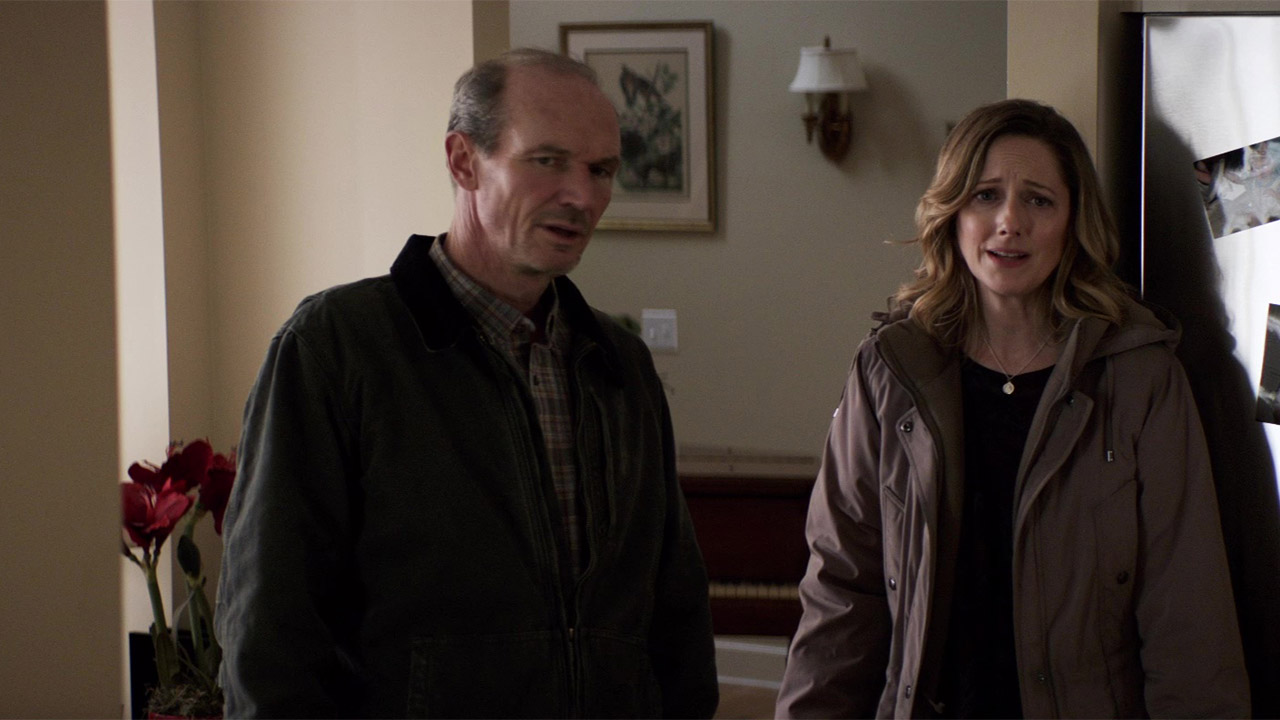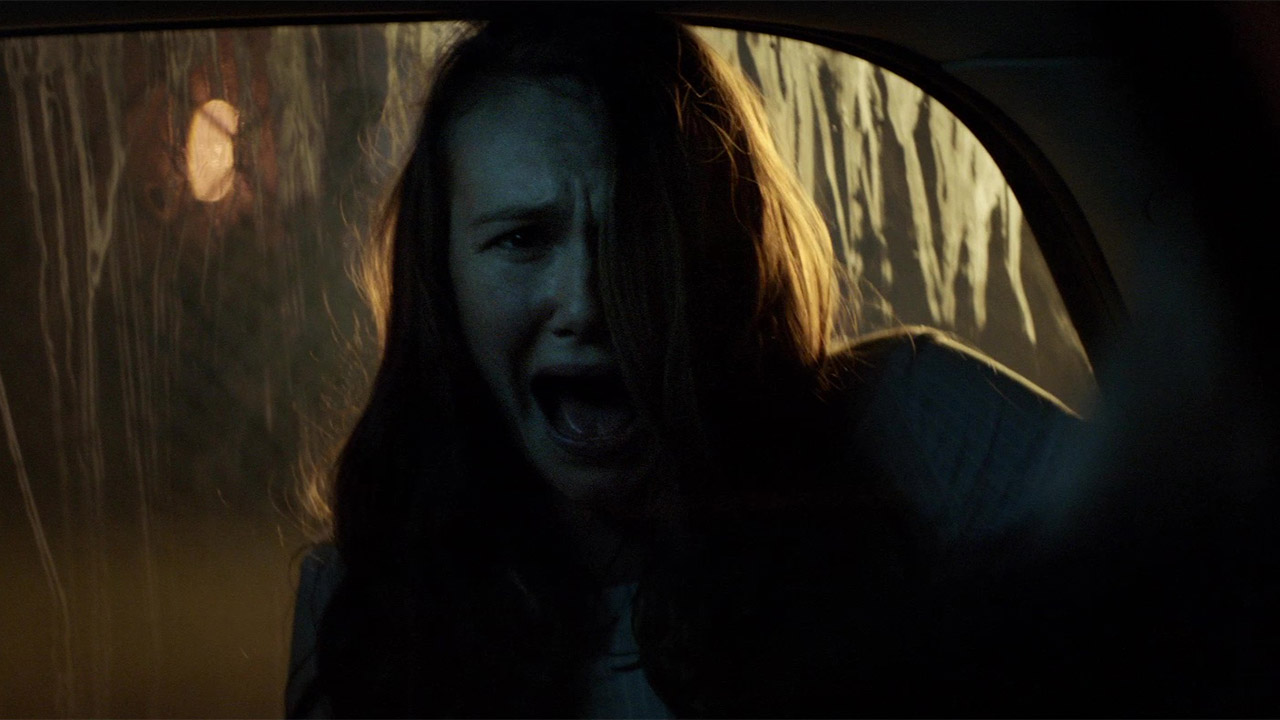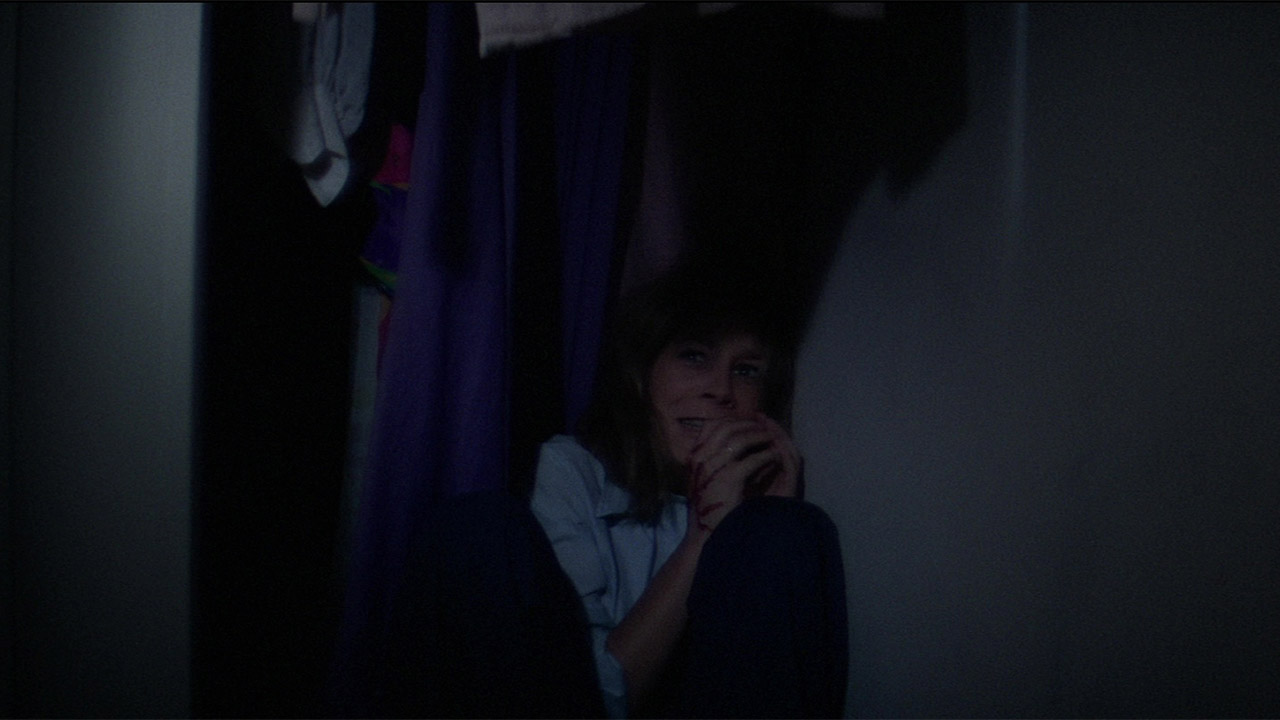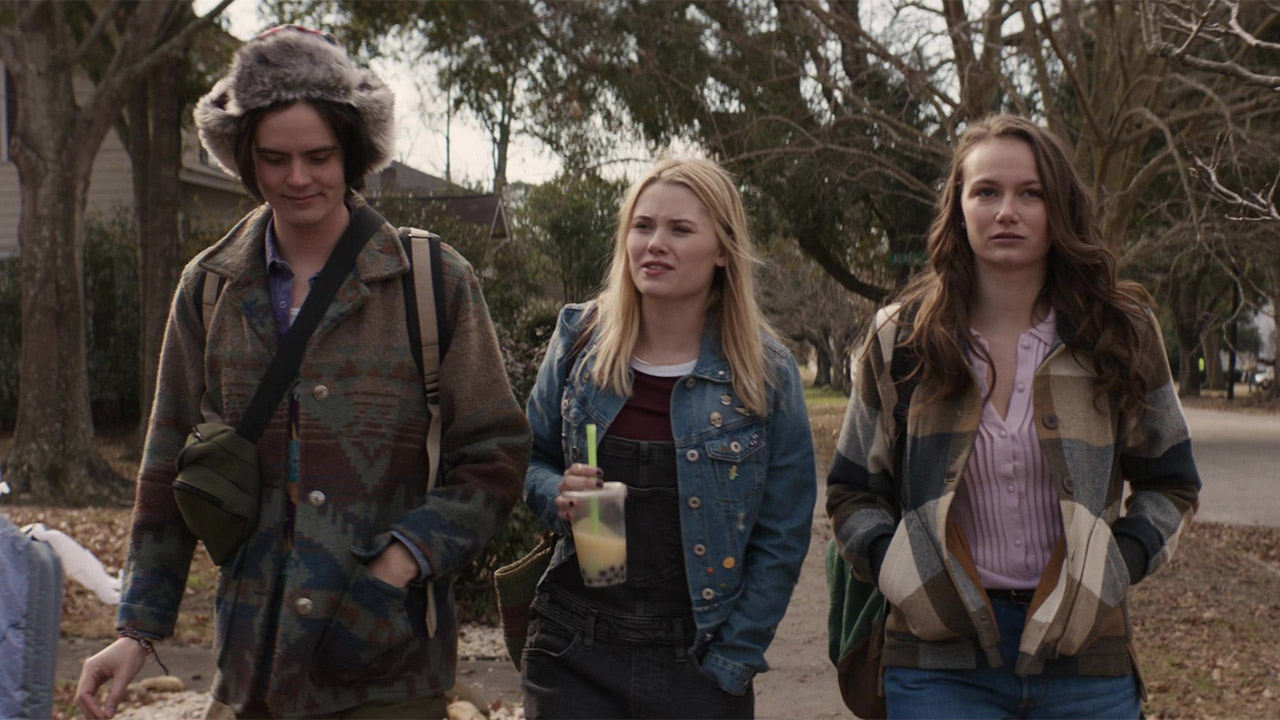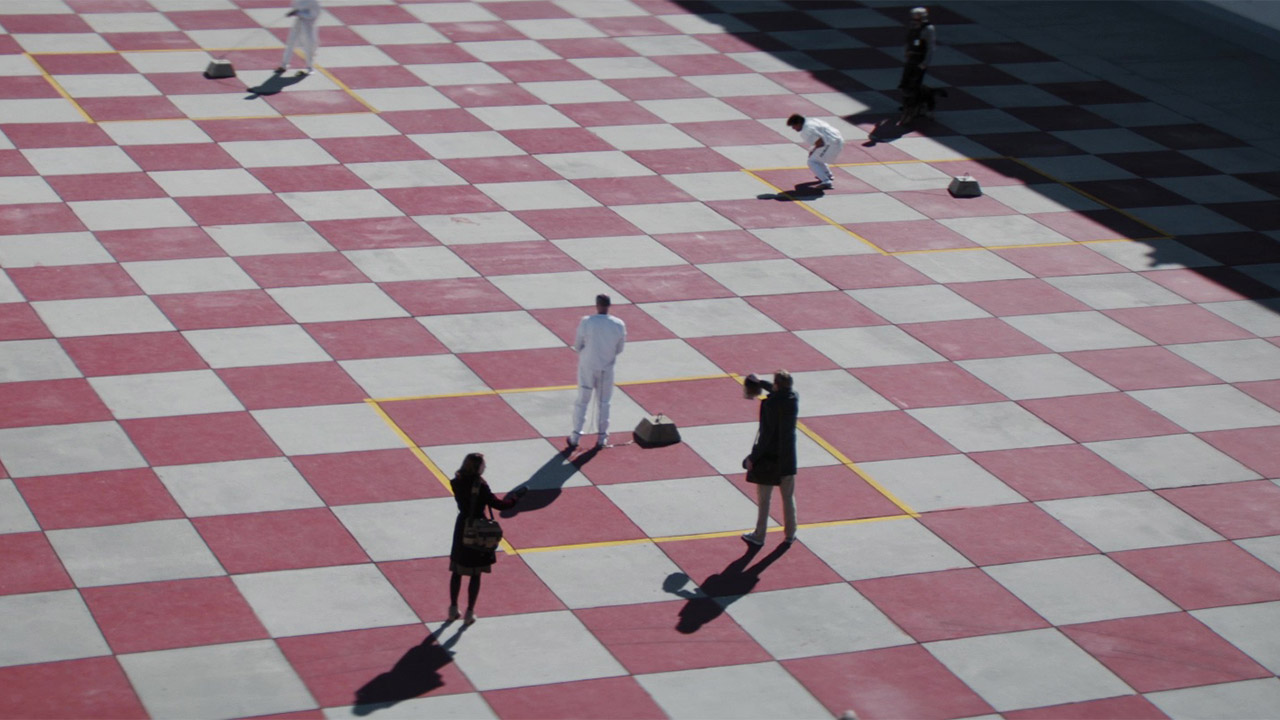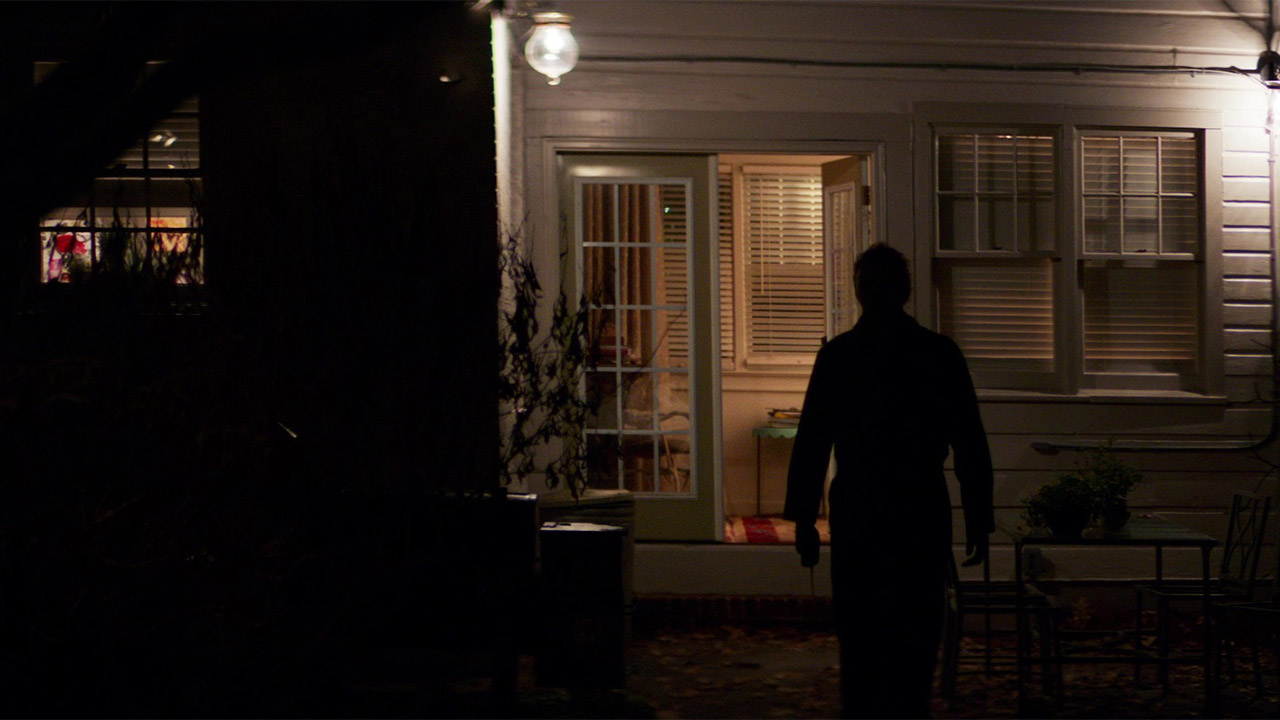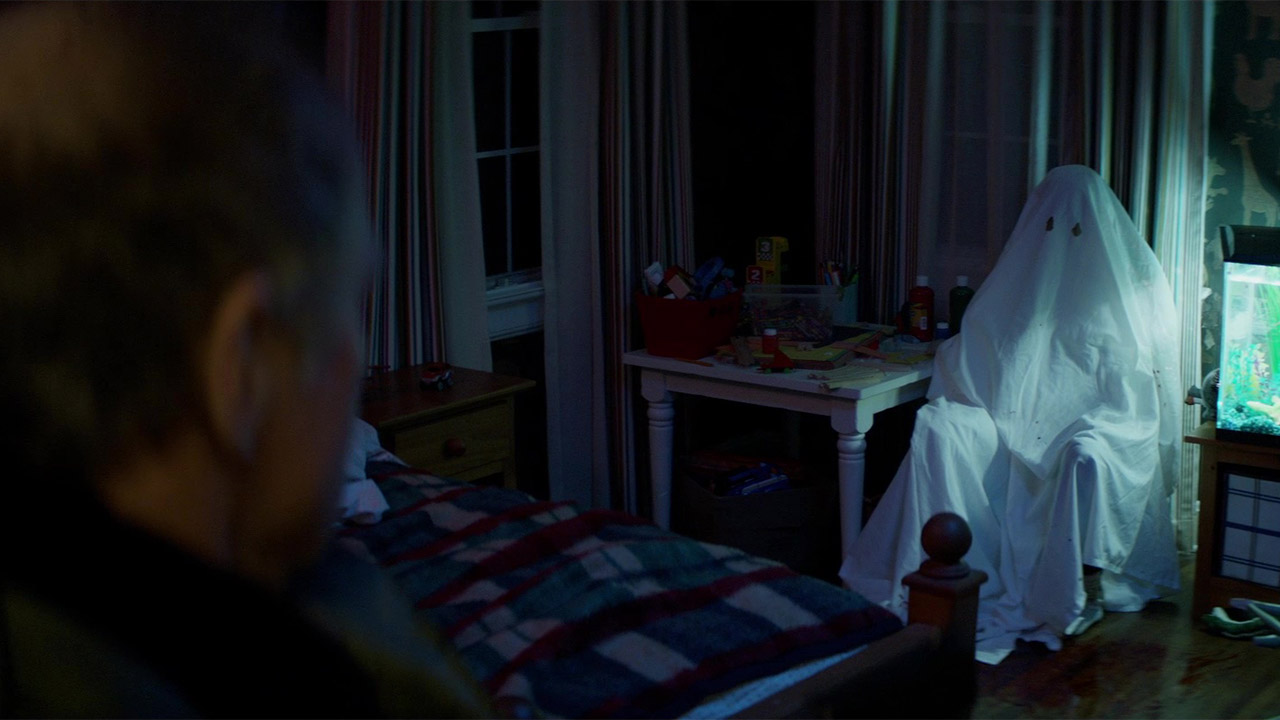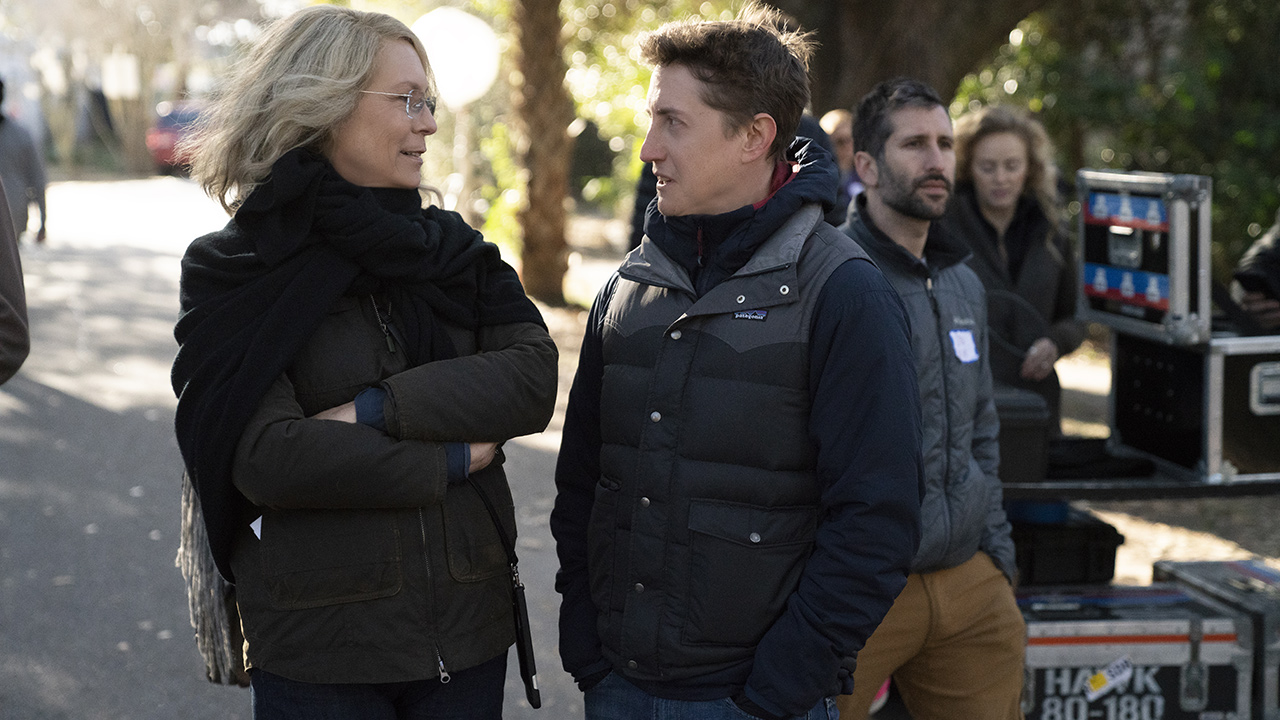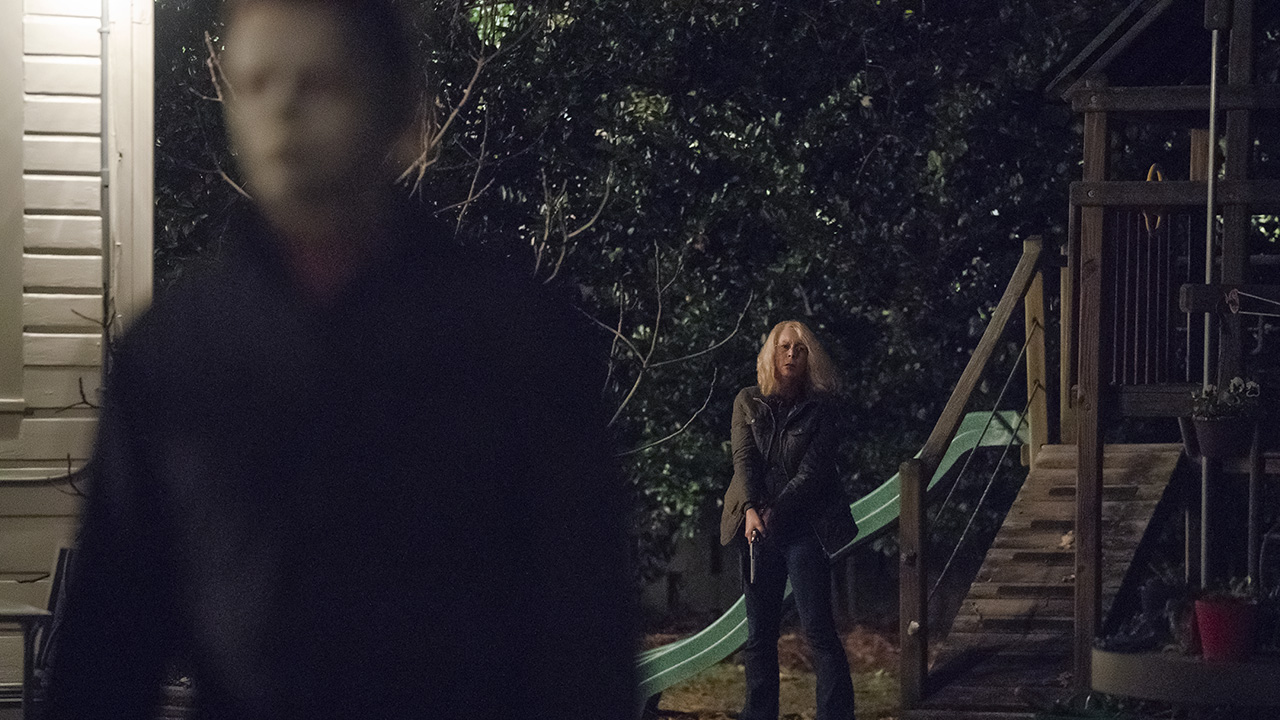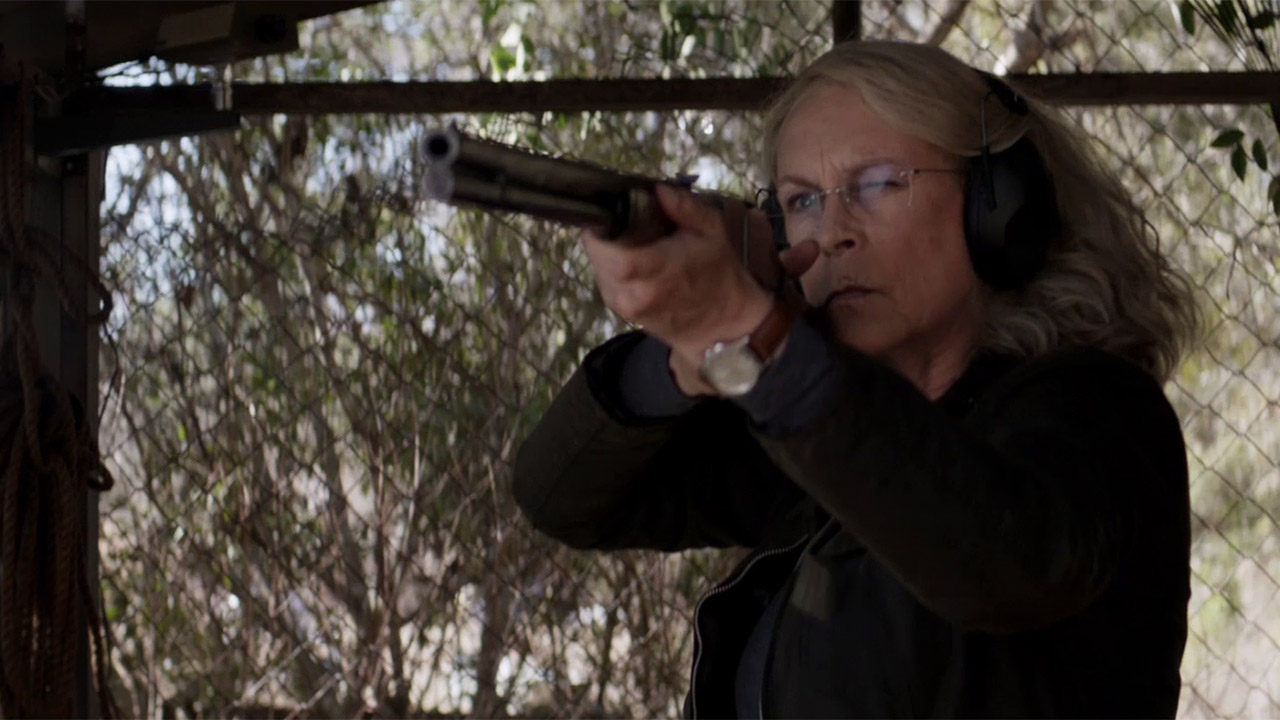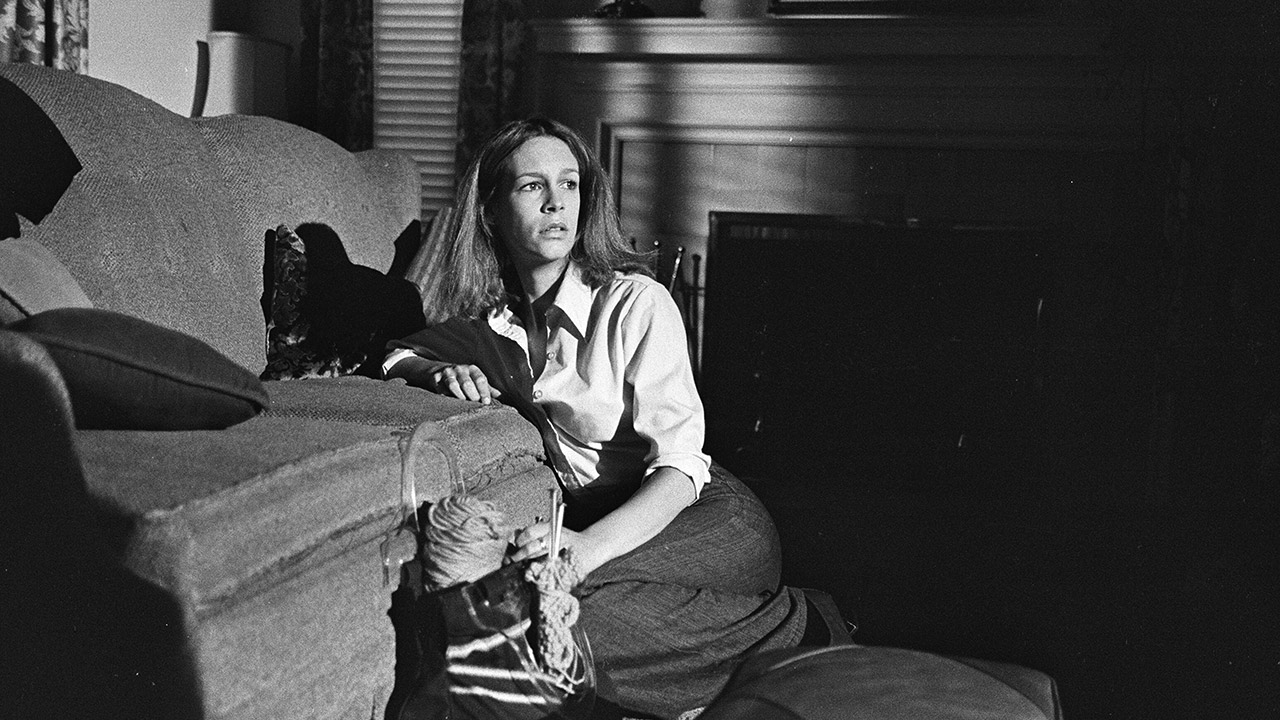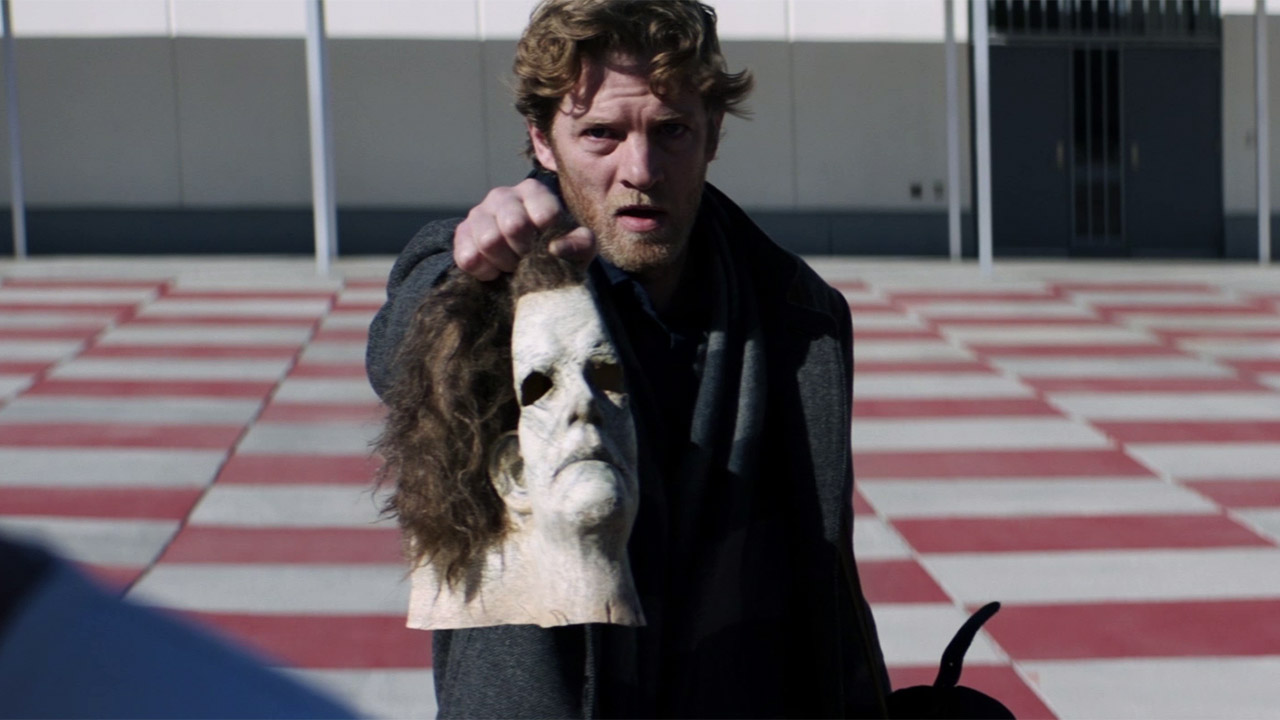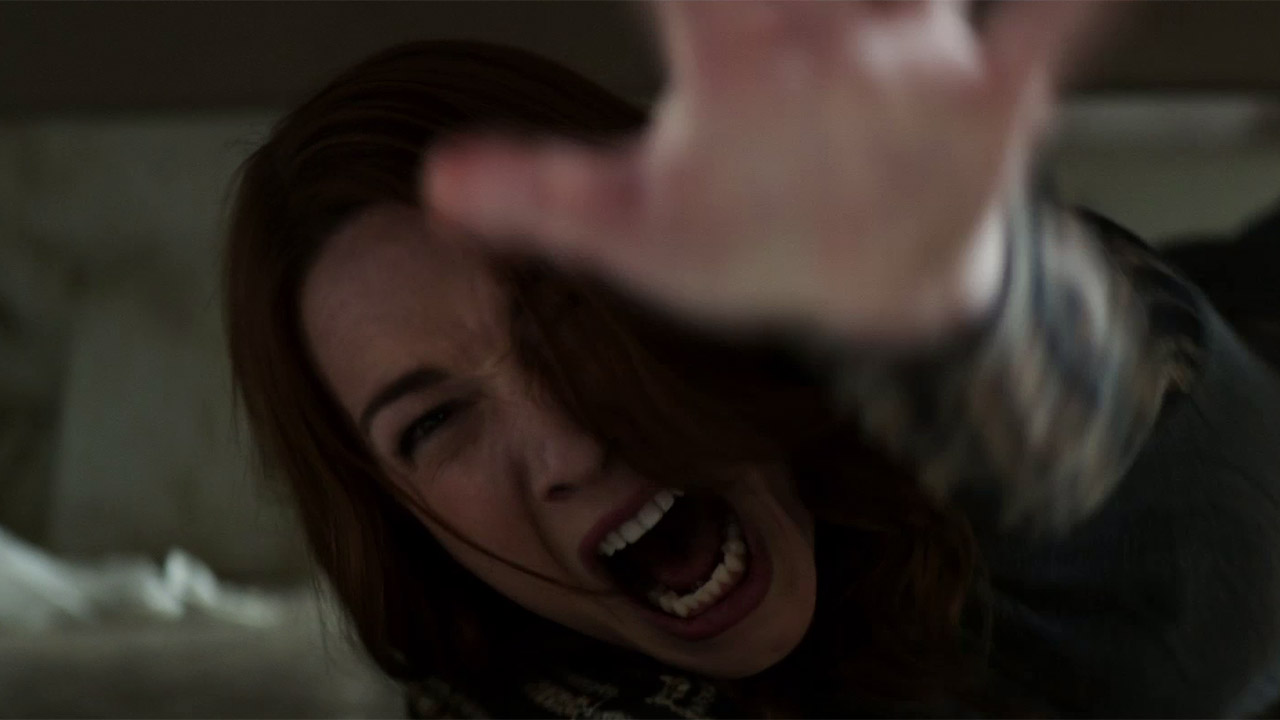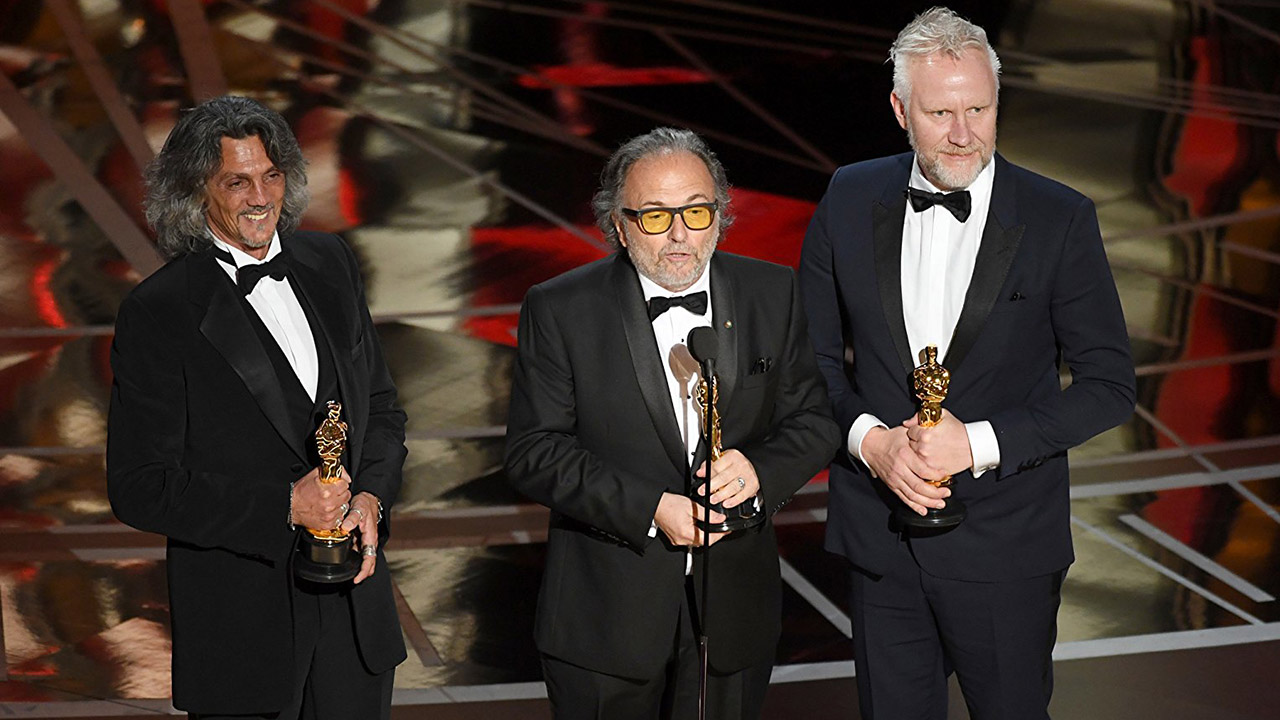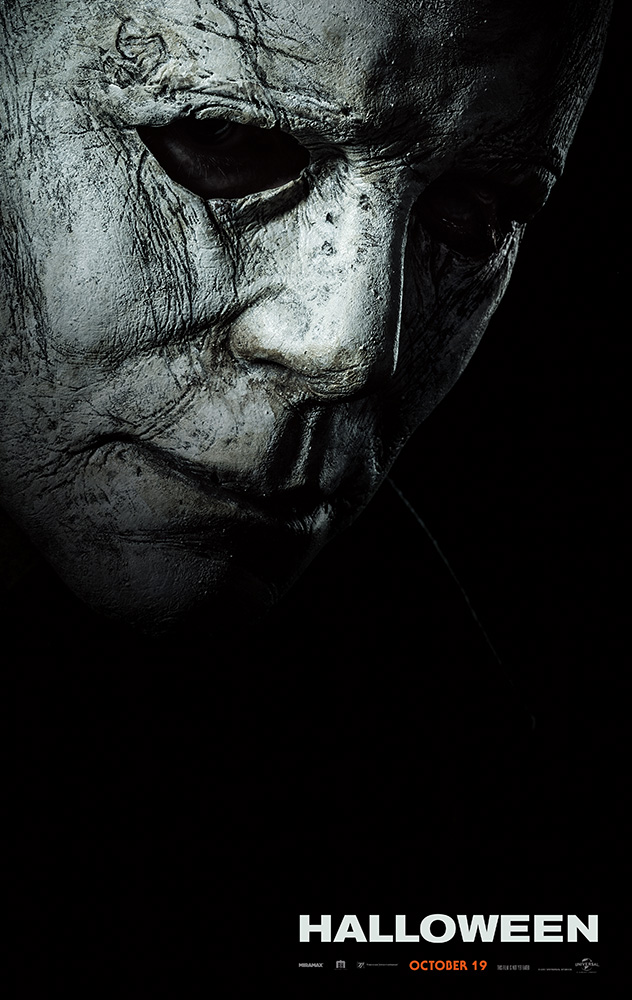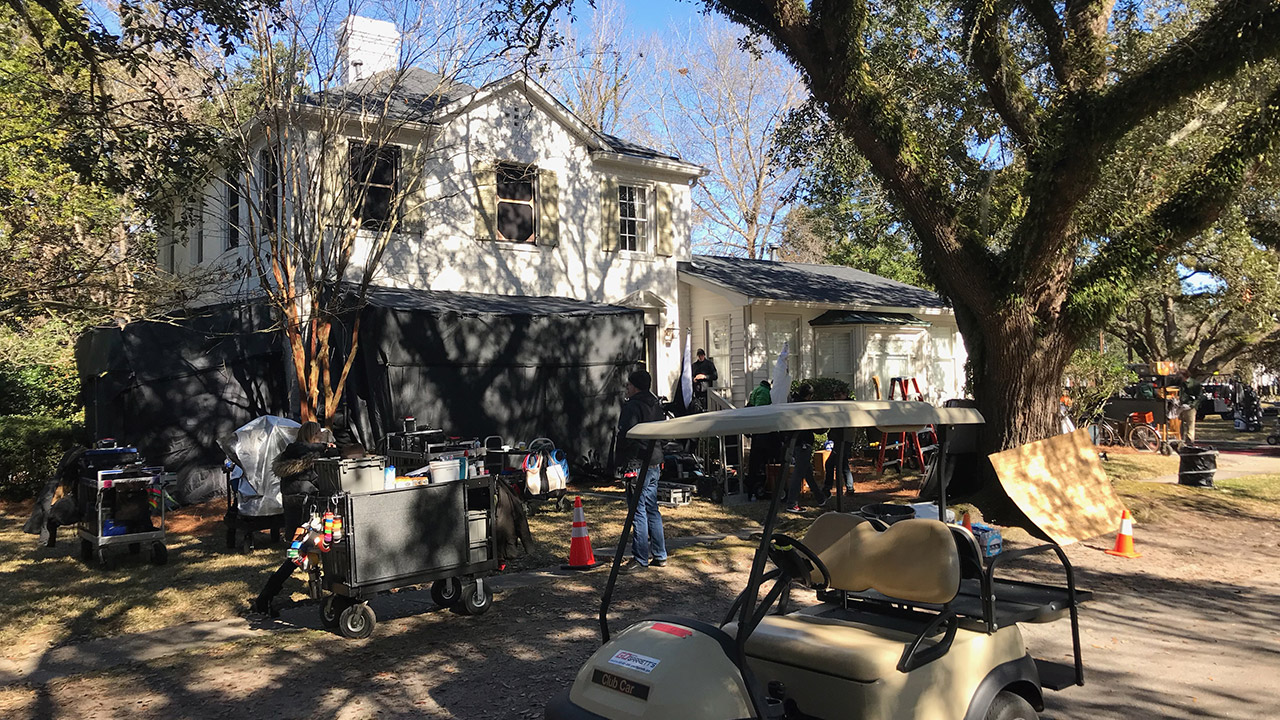Back on February 1st of this year while on the Charleston, South Carolina set of director David Gordon Green’s forthcoming feature film Halloween, HalloweenMovies.com had a chance to sit down with one of the film’s producers, Malek Akkad, in order to discuss the much anticipated series relaunch, as well as the future of the franchise itself.
The first film in the series in nine years, the simply titled Halloween was written by Danny McBride, Jeff Fradley and David Gordon Green (the latter who also directs), and is intended as a direct sequel to John Carpenter’s seminal 1978 film of the same name. Trancas International Films’ Malek Akkad, Blumhouse’s Jason Blum and Bill Block produce, with McBride, Green and returning series star Jamie Lee Curtis serving as executive producers, along with Ryan Freimann and series originator Carpenter, who also serves as the film’s composer.
Having joined us between takes in the small living room of a house being used for principal photography, we dove right in, asking Akkad (whose life from a young age has been intertwined with the franchise), ‘How did the partnership come about with Blumhouse on this eleventh film in the series?’
“Well, that’s a complicated question,” replied the forty-nine year old filmmaker. “We had done the previous five films with the Weinsteins (who we had) parted ways (with) about two years ago,” and acknowledging Harvey Weinstein’s legal woes added, “(which) some might say was very fortunate timing, and we were then with the original Miramax again. So we started looking at who would be a good partner for this, not only from Miramax’s point of view (in order) to help finance and distribute the film, but also to bring some new life into it. Blumhouse just seemed like a natural fit, and they’ve been great.”
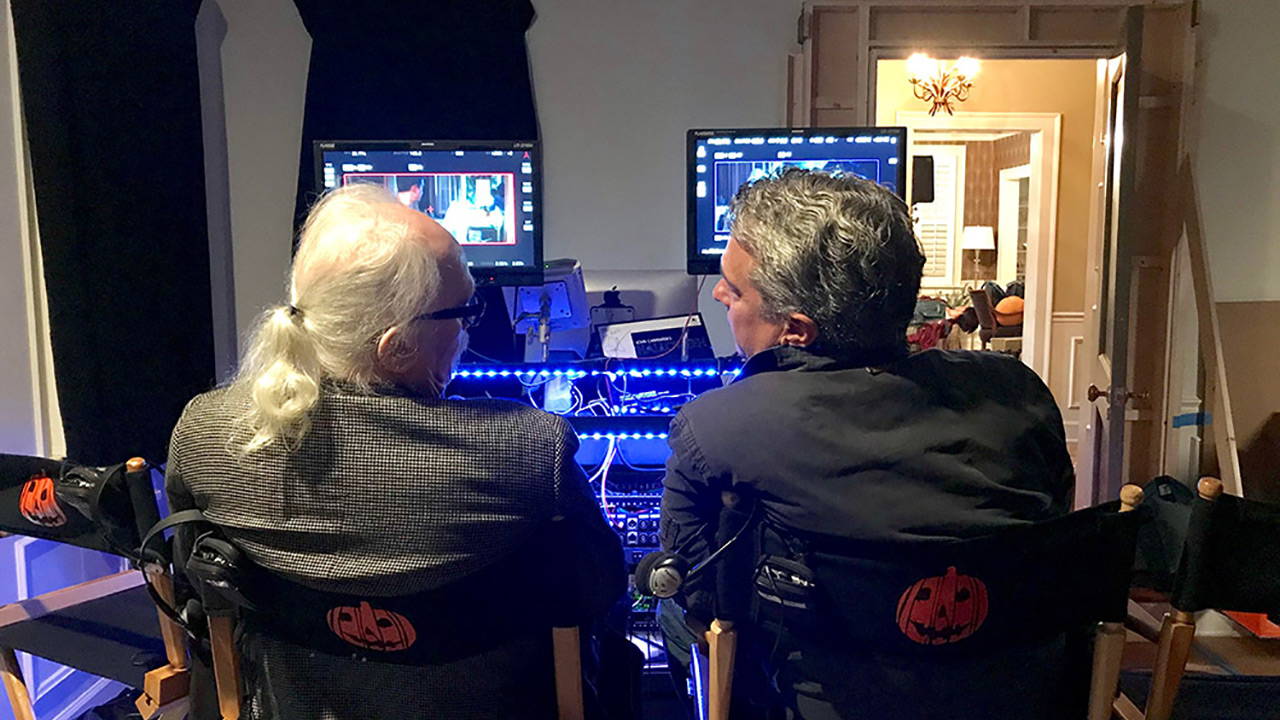
As for what direction Akkad – who has served as producer on six of the Halloween films – had intended the series to take, “Over the seven years since the last installment, I think there’s been dozens of different takes and pitches and starts and stops,” he recalled. “At one point after Halloween II, we were right back in development on Halloween 3D,” an iteration which was slated to be tackled by Drive Angry’s Todd Farmer and Patrick Lussier, “and a couple (of other) different incarnations.”
“The last go around was Halloween Returns,” he continued, which was to be a feature ‘recalibration’ scripted by Feast and The Collector’s series Patrick Melton and Marcus Dunstan and slated to be helmed by the latter, but which failed to materialize due to the expiration of rights then held by The Weinstein Company’s Dimension Films, “so there’s probably about four movies that could have been done in that time, but I think it was all for a good reason and the result, as you guys will see, is really great.”
As for series originator John Carpenter’s return to the fold here as an executive producer and composer, “As soon as we did part ways with The Weinstein Company, the first call I made was to John, and I just said, ‘You know, there’s no way we’re going to do one without you,’” said Akkad.
“It’s huge, to be here working with John, and Jamie (Lee Curtis) and all of those guys that who did the first film,” he continued. “I was an eight year old kid at the time (the original was made). It’s been a huge part of my life, and I can honestly say (that) no one would be happier than my father to see what we’re doing with it. He was the biggest champion of the franchise there was, (and) he kept it alive through many periods where it could have easily gone another way.”
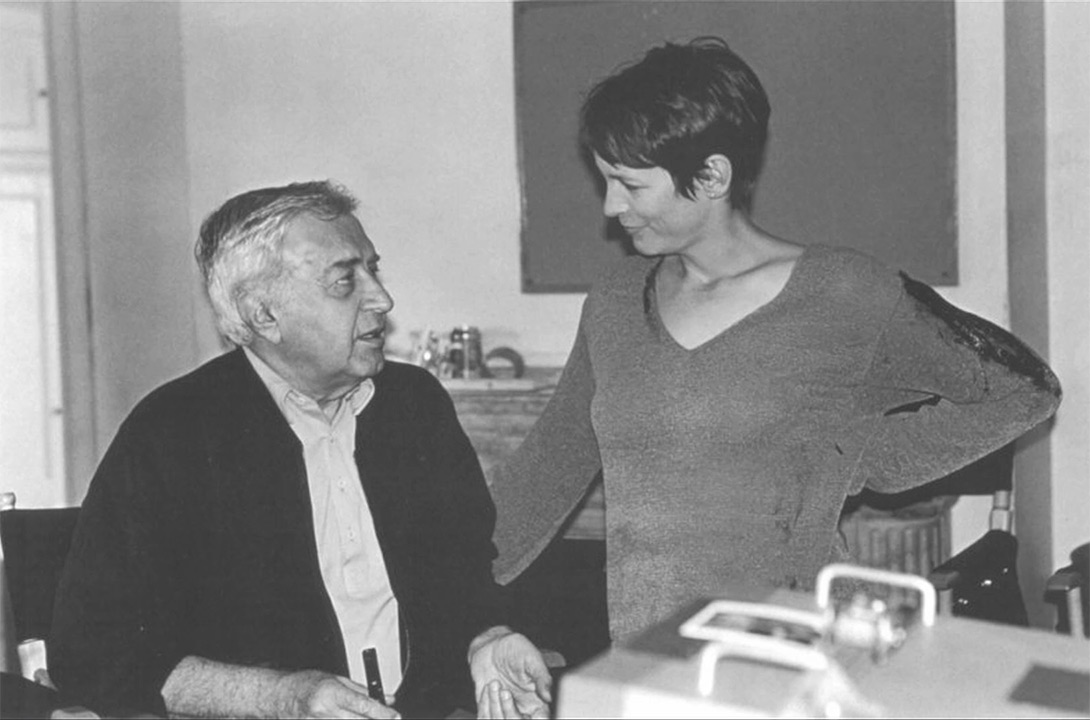
Of Akkad’s late father Moustapha, who served as an executive producer on the first eight Halloween films, the elder Akkad was also a celebrated director in his own right, having directed 1980’s Lion of the Desert and 1976’s controversial Anthony Quinn starrer The Message. The latter, a historical epic banned in Arab territories for the past forty-two years, recently received a 4K restoration spearheaded by Malek and a subsequent world premiere at the Dubai International Film Festival. Now playing in wide release across the region, the championing of his father’s work can be seen not only in this film (and in the documentary he’s making about the process of restoring and releasing it), but in the care Akkad is taking as well in this latest entry in the Halloween franchise.
“You’re always wondering what the fans reaction to that is going to be,” Akkad mused regarding Green’s now well-established relaunch in narrative, one which picks up directly where Carpenter’s 1978 classic leaves off.
To a large extent, it’s a clean slate, and from a director not known for their work within the genre.
“When you hear it from filmmakers like Green and McBride, that’s what makes you feel comfortable in doing it,” continued Akkad. “For me, from the get go, what was really important was (that) this franchise should be able to attract an A-list director. That was kind of the mandate, and Jason Blum really agreed and championed that idea as well, and I give him credit for bringing in a filmmaker like David.”
Does Akkad miss any of the series’ previously established narrative threads, ala Halloween 5 & 6’s “The Curse of Thorn,” which have now subsequently been abandoned?
“You know, there’s been so many left turns,” he answered. “One of the films I did not work on was Halloween 5, and that ending for example is so out of left field and to be honest, they didn’t even know how they were going to answer that: the man in black thing.”
“At one point,” Akkad continued, “We were working on Halloween 9, and there were so many loose ends after Resurrection. (It was) a huge puzzle to solve and my father, God bless him, was working with us on that. After he passed away we were going to start fresh (and) that was Rob Zombie’s (2007 film). He got to take his crack at that apple. (But) there are so many arcs in (the series) that you can never satisfy them all, and I think what David and Danny and Jeff have done has really cracked it, in a way that the fans are going to love. All the homages they’ve put in this film: there are just so many little Easter Eggs and touches to the original. Ultimately, we want to do something that the fans will love, and we also want it to be fresh.”
Regarding the always fervent Halloween fan-base and its response, “You’re always going to have people who are supportive (and) people who are not,” he said. “For example, when we did the (2007) remake I knew that was going to cause quite a stir, and it did. The only thing you can say is, ‘Well, if you want the original you’ve got the original,’ but I think this film is doing it in a way that will satisfy and really engage viewers, and hopefully be a really satisfying movie for the fans. Having done so many of these (films) at this point in time, I’ve never been more excited and more confident in that what we’re doing here.”
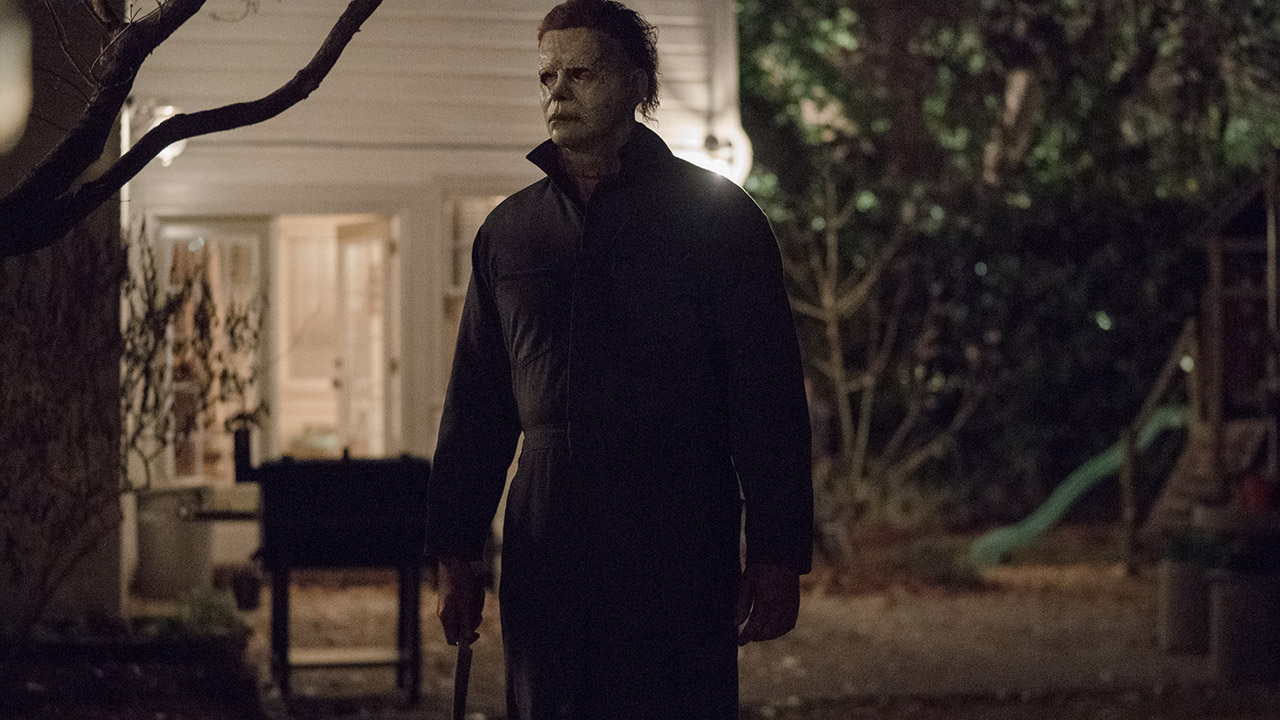
Much like the varied narrative threads which run throughout the series, the iconic killer’s mask has also differed from entry to entry, sometimes to the chagrin of fans. The original and regarded stemmed from a mold taken of William Shatner’s face for the 1975 Robert Fuest-directed horror film The Devil’s Rain in which he starred, which then served as the impetus for the Captain Kirk masks produced by Don Post Studios. In 1978, it was this Captain Kirk mask which the Halloween production picked up for a $1.98 at Burt Wheeler’s now defunct magic shop on Hollywood Blvd., and then modified. The result became the ghostly visage which has haunted theaters-goers for the past four decades.
Akkad was asked if Shatner has ever commented on this.
“Not to me directly,” stated the filmmaker, “and from what I hear he doesn’t really acknowledge it. I think he makes light of it. We actually have one of the original impressions of Shatner in our office in L.A., so obviously we’re really grateful to him, and in certain ways we’ve tried to reach out to him (to) maybe do an appearance? Lord know he’s busy enough with Star Trek stuff…but you never know.”
As for the production’s approach to creating the mask on display in this latest Halloween film (see our in-depth interview with Academy award winning FX artist Christopher Nelson here), Akkad stated, “Chris is an amazing artist. We’re super lucky to have him. There’s this love for this franchise that fortunately attracts great talent like that, and it’s also gone on to launch a lot of great talent, but Chris, David and I, we collectively conceptually wanted this mask to be special. Where would it be in the timeline of these events? And how would it look? It’s always been a difficult thing to get the mask right. As you know, there’s been hits and big misses. But what Chris has done is fantastic.”
In this continuity and with the character of Michael Myers turning sixty-one years old this year in it, the subject of not only the character’s age came up, but of the longevity of the franchise itself.
“It’s definitely something we talked about and thought about, and I think absolutely it’s a terrifying prospect,” Akkad coyly offered of Myers advancing years. “I mean, you can look at someone like Mickey Rourke, not that he’s terrifying, (but) someone who’s fit and that age, and I think it’s exciting because it gives us more options and things that we can do later, and hopefully this won’t be the last one.”
As for the longevity of the series, “My father used to always quote Donald Pleasance,” he continued. “He had asked Donald on the set of Halloween 6, ‘How many of these are you going to keep doing?’ and Donald said, ‘I’m not going to keep doing them, I’m going to stop at twenty two,’ and that was my father’s favorite quote. So as long as we’re doing something that the fans like, and there’s respect for the franchise, hopefully we’ll keep doing them.”
Green, McBride and Fradley’s new take on the material may indeed assist in that, given that in addition to showcasing an entirely new showdown between final girl Laurie and The Shape, it introduces two new generations of Strode women, Laurie’s daughter Karen and granddaughter Allyson (portrayed by actresses Judy Greer and Andi Matichak, respectively).
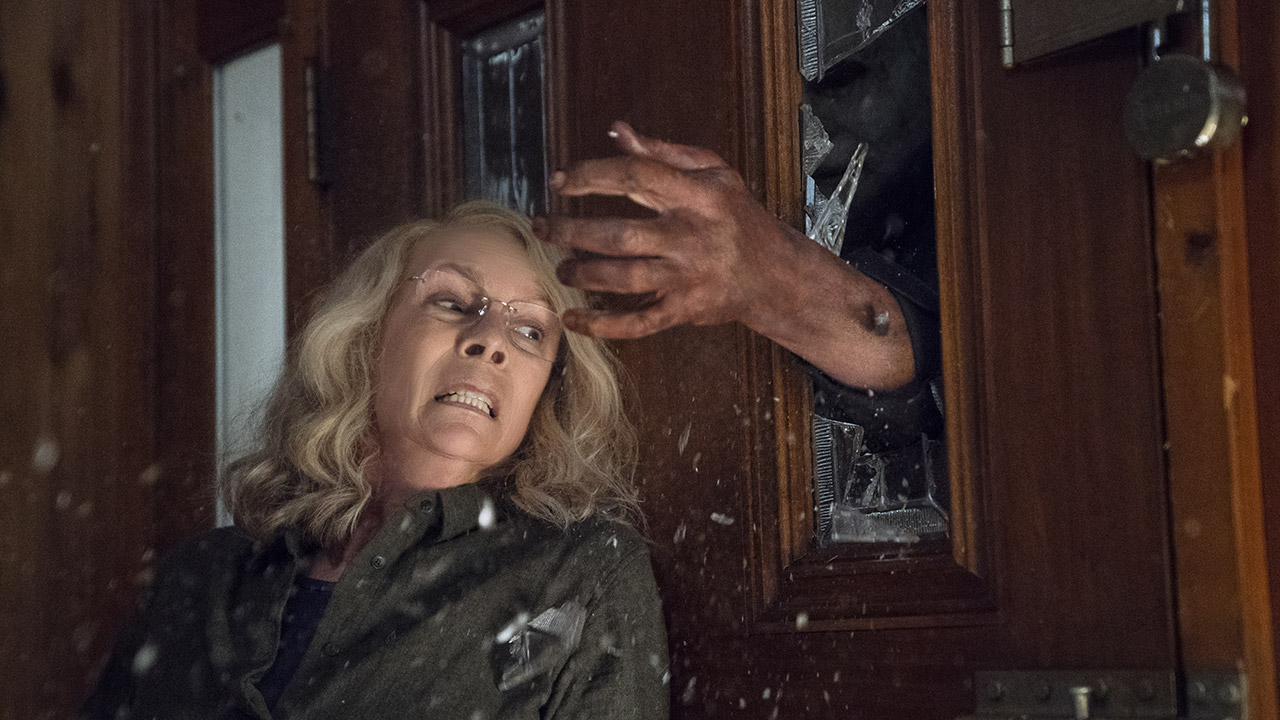
“Jamie Lee is the greatest,” effused Akkad of the return of the series’ heroine. “She’s the best thing about this franchise, other than Michael, and we’re so honored to have her back, and I think what David’s done with the three generations of women has really kind of opened this up, where it’s not just the typical teenage victim (as it is in most slasher films). It’s broadened it. It’s a more mature (form of) storytelling, and again I think that just comes down to a filmmaker like David Gordon Green.”
Of that form of storytelling, Akkad was asked whether or not Green’s take on the subject matter will attempt a balance between the rather bloodless suspense of Carpenter’s original and the cinematic brutality as evidenced in Zombie’s remake – the latter something modern audiences perhaps expect.
“My personal taste is definitely for the former,” he replied. “More elegant. It’s what you don’t see and it’s the moments leading up to the kill that are more terrifying for me. It’s interesting because we had some sort of battles with Rob Zombie’s (films), especially the second one which became a very violent and bloody film. It’s a taste thing I guess, and that’s more of Rob’s style, and that certainly found an audience and people who liked that. Personally I like the more bloodless elegance, and I will say I don’t think anybody who’s into that, or the gore and special effects (for that matter) are going to be disappointed in this one, (because) David is taking both to a higher level.”
As for working with often horror hit factory Blumhouse (post Get Out and the accolades they’ve received for it) on Halloween, “Jason’s really cracked that Rubik’s Cube on how to do big, theatrical horror and we’ve never seen that on this scale,” Akkad offered. “So it’s a really exciting time for horror, and a really exciting time to be working with them, honestly. What I’ve noticed is that they’re an artist driven company, and that’s a very admirable thing.”
“It all goes back of course to what John did in the original,” he mused when queried on his thoughts pertaining to the film’s legacy. “I think he disrupted the space so completely with this low budget film. It was so terrifying, and (he) created this iconic character in Michael Myers which has become part of the American lexicon. Now we’ve got an audience that spans generations. It’s crazy how long I’ve been a part of it (and) that’s exciting.”
Akkad concluded of Green’s Halloween, “I think this film will also broaden our audience even more, and there’s probably the younger generation who probably hasn’t even seen the original, or any in the franchise, and I think the beauty of this film is it will be a stand-alone piece of work by David that you can take on its own.”
Regarding the potential of an expanded Halloween universe, Akkad hinted at the property’s continuing spin-off into other forms of media (ala the asymmetrical horror survival video game Dead by Daylight which in 2016 added Myers as an antagonist), “This year there are going to be some big announcements to that effect, in looking at new forms of media. Attractions, videogames, VR, it’s all sort of being discussed so stay tuned, this year is going to be a big year for Halloween.”
And given the H40: 40 Years of Terror – The 40th Anniversary Halloween Event was recently announced, we believe him.
Halloween is set for release by Universal Pictures this coming October 19, 2018.
Writer’s note: this interview was edited and condensed for clarity.
